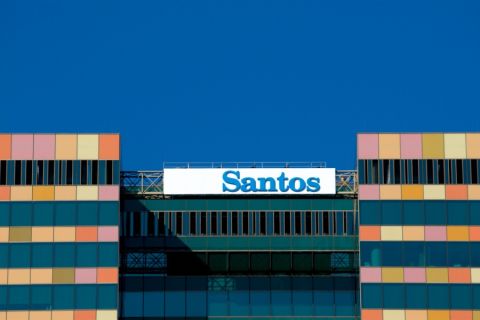The California electricity situation, more specifically its wriggling under the pressure of its light bills, is reminiscent of the survival-of-the-least-fit scenario of Ayn Rand's Atlas Shrugged, the tale of capitalism gone in retirement. The story today along the West Coast is like that on the East Coast in the 1970s, when New York City was on the verge of bankruptcy. The headline made famous in that crisis was "[President] Ford to City: Drop Dead." Could we be reading a "Bush to California: Lights Out" in a daily newspaper soon? Californian's utopian view of where energy comes from and to whom it belongs-somewhere else, and to everyone-is not unique to that state. American consumers have long expected cheap energy and from somewhere else. In Rand's tale, "equalization" laws resulted in businesses having to reduce their output, to match that of the least fit among them. Extinction through the food chain resulted, as businesses that supported others were shuttered. Already, the balance sheets of very viable non-Californian electric-power producers and marketers are speckled by not having been paid yet by Californians for this winter's energy bills. American consumers can learn a lesson from this, however: energy isn't getting any cheaper. Those in the gas production business know that U.S. gas supply isn't going to grow much anytime soon, says Richard J. Sharples, Anadarko Petroleum vice president of marketing and planning, and chairman of the Natural Gas Supply Association and the Natural Gas Council. Growth in supply is likely to be less than 1 billion cubic feet per day, even at current high drilling rates. This year's new wells will need to produce 8 Bcf per day just to hold production flat, he says. It would help Californians little to ask that East Coast industrial concerns be closed, to free some gas supply-a far-fetched idea, but so is their apparent way of thinking of energy. Sharples says, "Death of industrial demand is probably exaggerated." At press time, the remarkable economy of just a year ago was going horribly awry. • The Dow had slid well below 10,000, affecting the paper worth of all investors. • Only 15 initial public offerings were able to price in the first 10 weeks of the year, compared with 112 in the same period in 2000. (Half of those that have managed to get that boulder up the mountain this year have been energy offerings.) • A bankruptcy-law revision was speeding through Congress that will have the affect of discouraging America's largest consumer group-the middle class-from even rational spending exuberance. • Consumer confidence was at about 100, down from about 150 a year ago at the height of the dot-boom. • Household natural gas bills were double and triple their normal amounts coming out of winter, and odds are gas in storage won't improve much by this October. • The federal funds rate has been lowered three times in less than 10 weeks, and still no strengthening of the various indices, such as an Alan Greenspan favorite: orders for cardboard, which indicate an upswing in shipping, thus an increase in factory orders. • And, tax day this year is Easter Sunday. Put those eggs in your economic basket. What next? Will the Mir space station fall from the sky? (Fortunately it didn't hit an offshore production platform.) For once, it isn't the price of gasoline that has everyone screaming. "U.S. energy policy lacks global perspective and contains inherent contradictions, potentially making it difficult to meet emerging supply threats," the Center for Strategic and International Studies (CSIS) reports in The Geopolitics of Energy into the 21st Century, a three-volume report. Cambridge Energy Research Associates (CERA) senior director Lawrence J. Makovich told a U.S. House of Representatives subcommittee in mid-March that California is not getting itself out of its mess at all. "This summer is likely to generate billions of dollars of additional wholesale power charges that will appear on the state's books and need to be paid off over an untold number of years," he said. The juncture is critical, he believes. "The state can go backwards by re-regulating or even taking outright ownership, or the state can fix the flaws in its power market. The latter is the way to go." Lest we one day ask, "Who is Louis Dreyfus?"
Recommended Reading
US Drillers Add Oil, Gas Rigs for First Time in Five Weeks
2024-04-19 - The oil and gas rig count, an early indicator of future output, rose by two to 619 in the week to April 19.
Strike Energy Updates 3D Seismic Acquisition in Perth Basin
2024-04-19 - Strike Energy completed its 3D seismic acquisition of Ocean Hill on schedule and under budget, the company said.
Santos’ Pikka Phase 1 in Alaska to Deliver First Oil by 2026
2024-04-18 - Australia's Santos expects first oil to flow from the 80,000 bbl/d Pikka Phase 1 project in Alaska by 2026, diversifying Santos' portfolio and reducing geographic concentration risk.
Iraq to Seek Bids for Oil, Gas Contracts April 27
2024-04-18 - Iraq will auction 30 new oil and gas projects in two licensing rounds distributed across the country.
Vår Energi Hits Oil with Ringhorne North
2024-04-17 - Vår Energi’s North Sea discovery de-risks drilling prospects in the area and could be tied back to Balder area infrastructure.



